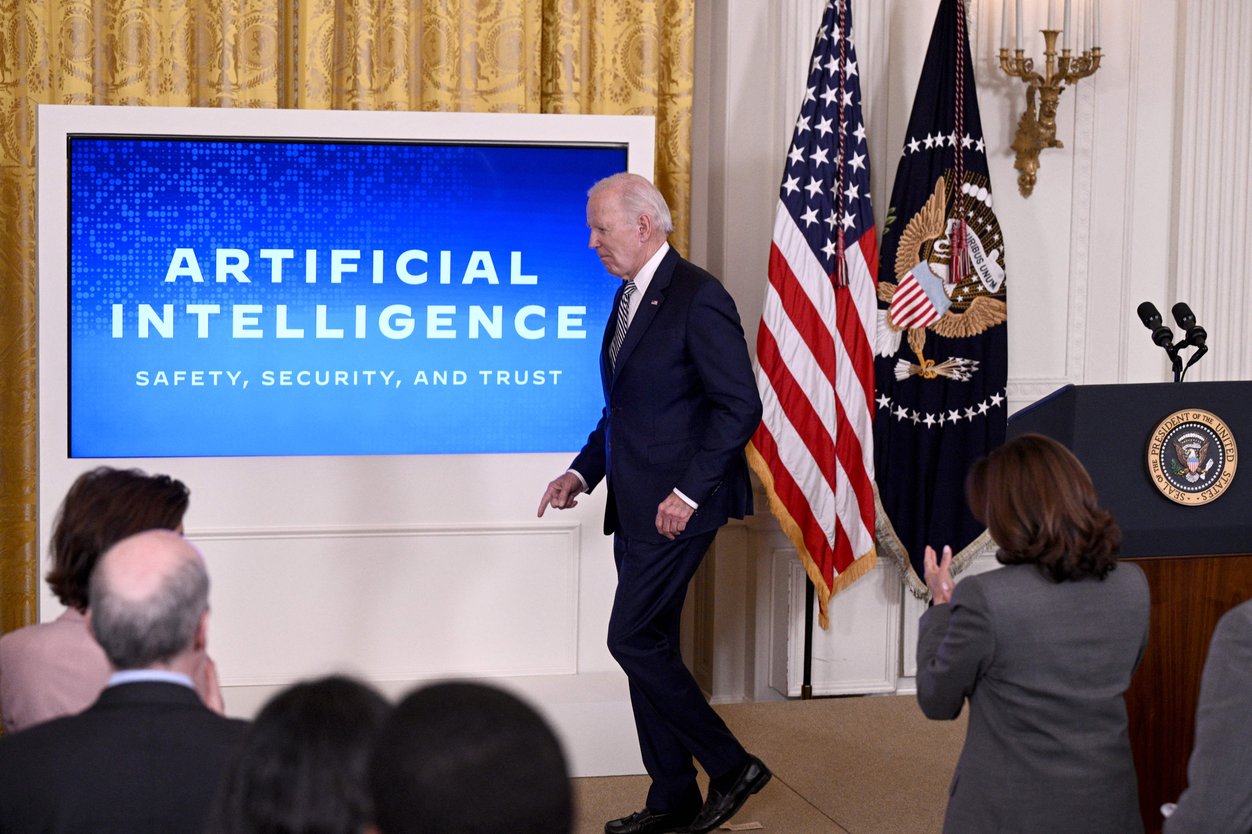Housing and health coincide for veterans receiving dialysiscloser look
AI startups turn up the heat on White House AI order 
Brendan Smialowski/AFP Via Getty Images
AI entrepreneurs across the U.S. are racing to deploy tech in health care while regulators in Washington are simultaneously working to protect patients from harmful, biased algorithms. Their imperatives are competing as HHS builds a task force mandated by the White House's recent executive order and charged to issue a strategic plan in one year. The 111-page order outlines several steps federal agencies and companies must take to guard against such pitfalls as privacy and safety violations.
AI experts applaud attempts to protect patients, but they still have some concerns:
- Regulations might focus too narrowly on evaluating models' training datasets as a way to root out algorithmic bias.
- It's not clear how HHS guidance will interact with general laws about the practice of medicine, and with state medical boards.
- The order doesn't discuss AI's potential impact on a clinical workforce facing burnout.
STAT's Mohana Ravindranath has more.
chronic conditions
Housing and health coincide for veterans receiving dialysis
A new study of U.S. veterans finds an often-overlooked factor may be influencing the outcomes of dialysis patients: housing. In a retrospective cohort study of nearly 26,000 veterans who received dialysis between 2012 and 2018, researchers found that patients who reported unstable housing before starting dialysis had an increased risk of all-cause mortality. The researchers defined unstable housing as including "homelessness and housing that one might lose because it is unaffordable, overcrowded, or dangerous."
The findings, published in JAMA Network Open on Tuesday, also suggest risks increased as the veterans got older. Hispanic ethnicity, a lack of kidney care before starting dialysis, and insurance other than Medicare were also associated with unstable housing. And these patients were also more likely to receive dialysis through a graft (instead of a fistula, which is considered the preferred method).
Homelessness among veterans in the U.S. was halved between 2010 and 2022, but socioeconomic disparities might still be creating a gap in outcomes among dialysis patients, including by making day-to-day care more difficult, the researchers write. "Interventions addressing housing as part of clinical care have the potential to lower risk of mortality."
COVID-19
People with long Covid more likely to be reinfected, study says
A new study from China looking back at three-year outcomes for more than 1,350 people who recovered from the first known cases of Covid-19 concludes that people with long Covid were more likely to be reinfected during the Omicron wave than people who recovered from Covid without lingering symptoms. Three-quarters of the people with long Covid were reinfected, compared to two-thirds of people who recovered from Covid but had no persistent problems. People with long Covid were also more likely to develop pneumonia and other new or worsening symptoms.
The researchers say impaired immune function in long Covid patients could explain the higher proportion of reinfections, so they urge vaccination with three or more doses. "Although the organ function of survivors of Covid-19 recovered over time, those with severe long Covid symptoms, abnormal organ function, or limited mobility require urgent attention in future clinical practice and research," they write in Lancet Respiratory Medicine.
On this week's First Opinion podcast, First Opinion Editor Torie Bosch talks with Mara Buchbinder and Jesse Summers about living in cancer limbo. Listen here.


No comments